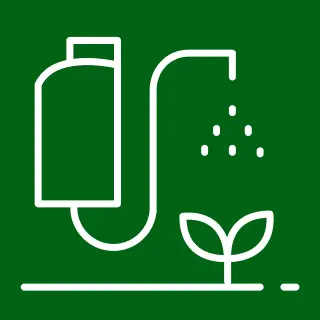The impact of climate change on the agricultural industry
Climate change refers to the long-term shifts in global temperatures, weather patterns, and climate systems, primarily caused by human activities such as burning fossil fuels, deforestation, and industrialization. These changes disrupt ecosystems and lead to extreme weather events, including droughts, heat waves, and heavy rainfall. The impact extends to vital resources such as soil health, crop yields, water availability, and pest dynamics, which together threaten global food security and the livelihoods of farmers.
Agriculture plays a dual role in the climate change narrative. While it contributes around 30% of global carbon dioxide emissions, it also has the potential to become a significant solution to the crisis. The Food and Agriculture Organization (FAO) underscores the opportunity for the agri-food sector to lead the transition to more sustainable and resilient farming systems. However, funding remains a challenge, with only 20% of climate-related development funds allocated to agri-food, down 12% compared to 2021. (1)
The relationship between soil degradation, water use efficiency and climate change in agriculture underscores some of the sector’s most significant challenges. Extreme weather events, such as heavy rains that cause soil erosion, and droughts that deplete soil moisture, accelerate land degradation. Degraded soils lose fertility, structure, and water retention capacity while releasing stored carbon, contributing to greenhouse gas emissions. Compounding this, agriculture consumes 72% of global freshwater withdrawals, emphasizing the need for more efficient resource management to safeguard productivity and sustainability.
The effects of climate change are already reshaping agricultural practices
Alterations in rainfall patterns and rising temperatures disrupt crop cycles, while extreme weather events, such as those caused by the El Niño phenomenon, exacerbate these challenges. El Niño, characterized by Pacific Ocean surface warming, triggers global weather disruptions, including droughts and floods, significantly impacting food security in vulnerable regions such as southern Europe (2). Soil erosion, which is worsened by heavy rains, and the accelerated decomposition of organic matter in warmer climates further threaten soil vitality, which is so critical for agricultural productivity. (3)
Adopting sustainable agricultural practices is crucial to mitigate these effects and enhance resilience. Strategies such as efficient water use through drip irrigation, rainwater harvesting, and implementing crop rotation and diversification improve soil health and resource efficiency. Agroforestry techniques can reduce erosion and capture carbon, while the use of biostimulants, efficient fertilizers, and biological pest and disease management fosters plant resilience and lowers environmental impact. Soil conservation methods, such as no-till farming, along with cultivating crops that are resistant to extreme conditions such as drought and heat, also play a vital role. (4)
Sustainable agricultural practices not only mitigate the impact of climate change but also enhance long-term profitability and environmental stewardship, creating a pathway towards more resilient and secure food systems for the future.
Rovensa Next – driving resilient agriculture
In this context, Rovensa Next positions itself as a leader in the biotransformation of agriculture. Our innovative biosolutions help farmers to tackle current and future challenges. Our products, such as biostimulants, biofertilizers, crop nutrition, biocontrol, and adjuvants, are essential for more efficient, resilient, and environmentally friendly agriculture. Discover how our combined strategies can help your crops mitigate the effects of climate change.
Soil strategies:
WIIBIO. Soil regenerating biofertilizer with biostimulant properties
- Boosts rhizosphere by recruiting other beneficial microorganisms that support overall plant growth and development.
- Enhances root systems and increases the availability of nutrients such as phosphorus and iron.
- Increases yield and fruit quality in a wide range of fruit and vegetable crops, and production systems.
Humistar WG. High-quality humic acid that improves soil structure, nutrient availability, and root development.
- Enhances the physical structure of soil, enabling better aeration and increased water penetration.
- Improves root development which benefits from the improved nutrient availability and uptake for better plant growth.
TRANSFORMER. A biodegradable product that improves water retention, reduces soil compaction, and enhances crop yields.
- Improves water infiltration and nutrient uptake and prevents waterlogging.
- Ensures uniform moisture and reduces irrigation fluctuations.
Integrated pest and disease strategies for plant protection
Biofungicides: microbial and plant extract-based solutions
- These include products such as Naturdai MIM, a biofungicide that is effective in preventing and curing various diseases; Portento, a biological fungicide based on Bacillus subtilis, and Ospo-Vi55, a next-generation biological eradicant for powdery mildew.
- Sustainable and safe: ideal for organic farming and for reducing reliance on chemical treatments.
Pyrethrin-based solutions
- Examples include Tec-Fort, Santem, and Xterminator.
- Effective against multiple insects: they contain pyrethrin, providing broad-spectrum insect control.
- Environmentally friendly: natural solutions that reduce the environmental impact of pesticide use.
Advanced adjuvants
OROWET® technology: an advanced technology that uses surfactants and natural extracts to improve pesticide and nutrient delivery.
- Optimized penetration: enhances absorption in plants for better nutrient uptake.
- Sustainable formula: made with natural ingredients for eco-friendly performance.
- Water-efficient: reduces application volumes, promoting resource conservation.
WETCIT: adjuvant that improves the effectiveness of pesticides and fertilizers by enhancing wetting, spreading, and penetration on plant surfaces.
- TransPhloem® technology: It uses TransPhloem™ technology to accelerate the absorption and movement of active ingredients, ensuring better pest control and nutrient
- Superior spreading and penetration enhance coverage, cuticle penetration, and absorption compared to other adjuvants.
Rovensa Next not only boosts agricultural productivity with these strategies but also promotes healthy ecosystems and a more sustainable future for all. Together, we can transform agriculture and mitigate climate change!
(1) Agri-food solutions to address climate change
(3) The FAO in the global climate action agenda
(4) FAO Strategy on Climate Change 2022–2031















